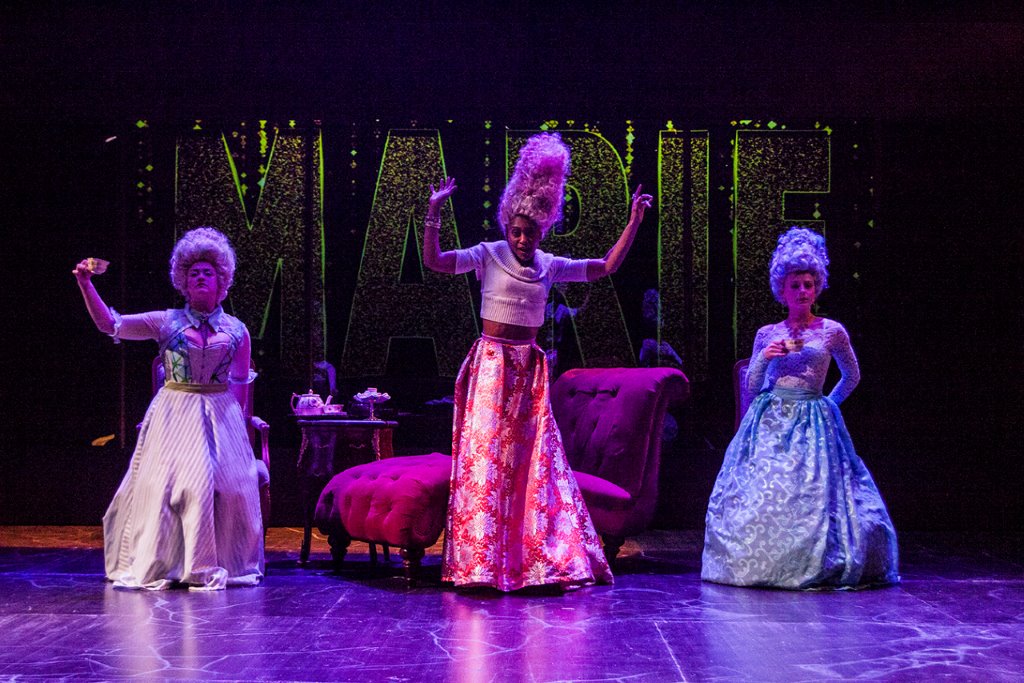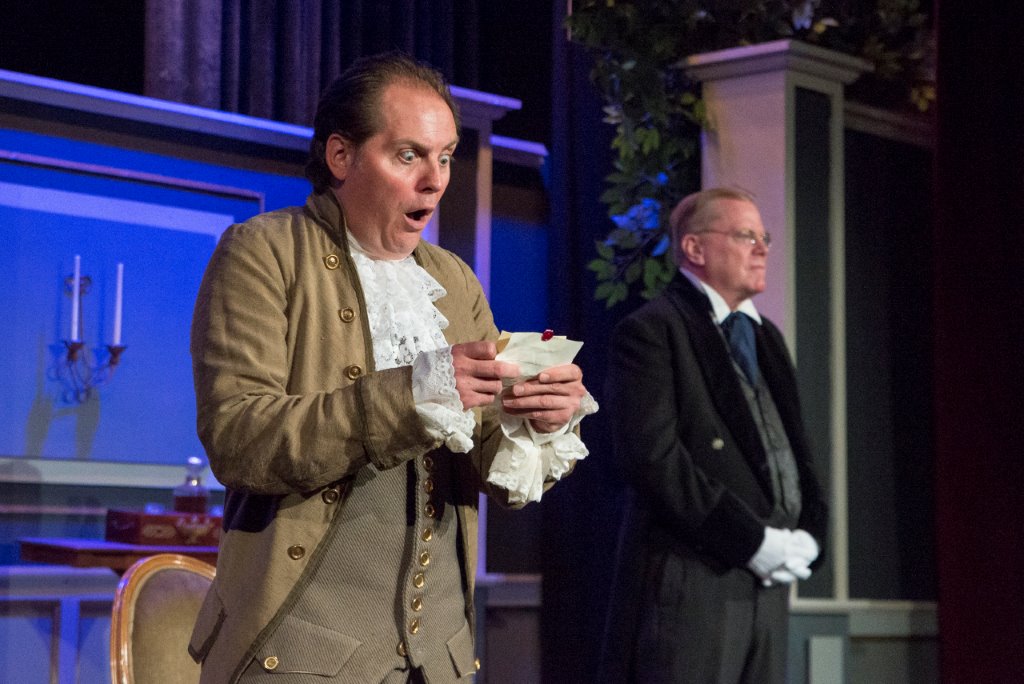Feminism a dish best served hot in Mamaí Theatre Company’s ‘Top Girls’
By Bob Abelman
The dinner table — where two or more contrary characters are required by convention, circumstance or social obligation to sit and talk — is often used as the centerpiece of great plays. It’s where proper etiquette and unpleasant temperament collide, resulting in character-defining discomfort, unexpected disclosure and some really good theater.
Shakespeare had Macbeth join Lady Macbeth and various Lords for dinner only to find his place occupied by Banquo’s ghost. The Bard served up some chilling cuisine during the notorious family feast in “Titus Andronicus.”
The extent of southern family dysfunction and the epitome of narcissistic Bohemian behavior unfold over dinner in Tracy Letts “August: Osage County” and Noel Coward’s “Hay Fever,” respectively.
It can be argued that some of the most memorable moments in thrillers such as Patrick Hamilton’s “Rope,” comedies like Bernard Shaw’s “You Never Can Tell,” dramas like Tennessee Williams’ “A Streetcar Named Desire” and such sentimental storytelling as Charles Dickens’ “A Christmas Carol” take place at the table.
This is certainly the case with “Top Girls,” Caryl Churchill’s treatise on women breaking the glass ceiling that premiered in 1982 at London’s Royal Court Theatre on the cusp of the equal rights movement at the start of the Thatcher era. The Mamai Theatre Company is staging an intriguing production of the play.
The first of its three acts takes place in a restaurant where the self-assured Marlene, played to perfection by Lisa Langford, is celebrating her promotion to managing director of an employment agency. Churchill invites to the dinner party five prototypical guests who have, in their own unique way, redefined the role of women.
But they are not the usual suspects of second-wave feminists. Instead, there’s a martyred female pope from the Middle Ages, who orders cannelloni and salad. She is perfectly underplayed, with wonderfully subtle humor, by Amy Schwabauer. A 13th century concubine turned Buddhist nun, whom the delightful Anne McEvoy portrays with saintly resignation as she describes Lady Nijo’s rape as a young woman, joins Pope Joan.
Also sharing the meal is a folkloric Flemish peasant warrior, immortalized in a 1562 painting by Bruegel the Elder, who will now be remembered for the clever antics bestowed upon her by Courtney Brown when the character is not engaged in dinner conversation. Joining the party is the celebrity Victorian naturalist and explorer Isabella Bird, who opts for chicken and soup but is nicely played with layers of “non-kosher meat” by Rocky Encalada. The last to arrive is the too-obedient wife from Chaucer’s “Canterbury Tales,” Patient Griselda, whom Cassandra Miller plays with refined dignity.
Inviting strong females from fiction and the faded past allows Churchill to not only champion their achievements but comment on the costs — the moral compromise of subservience, the physical toll of sexual abuse and political wrath, the personal sacrifice of being married off as teenagers and having female children killed by their husbands — associated with obtaining them.
To reinforce this poignant point, the dinner party decays into drunken, self-absorbed rants during which the women vie for attention and dominance — characteristics typically associated with the alpha males who ruled their existence. Director Jaime Boluvier orchestrates this scene perfectly by counterbalancing all the overlapping dialogue with distinctive, character-defining action by the players and dressing all in detailed character-defining costuming by Suzy Q. Campbell.
Boluvier is not as successful in making the other scenes in the play as interesting. They are less absurd, and Churchill narrows her focus on Marlene, her coworkers and clients, her estranged sister, niece and the niece’s young friend — all played by the aforementioned actresses, including the delightful Isabel Wang.
These scenes are overwritten, perhaps purposefully, to emphasize the magnitude of the multitude of arguments being made about whether women can have a family and a career, and whether they can have both at the same time.
But words get lost in the sound-absorbing confines of the performance space when there are fewer actors in it than during the iconic opening. And these scenes are less interesting visually in this scenery-less setting despite scenic designer Don McBride’s effort to narrow the space by creating a series of receding proscenium arches adorned with bunting.
Still, this play and this production amount to an extraordinary accomplishment in retention of the playwright’s message and her means of delivering it. Nothing feels dated, even though the work is specific to England in the 1980s. Using an ethnically diverse cast of women helps along these lines. Casting extraordinary talented women helps even more. CV
On stage
WHAT: “Top Girls”
WHERE: Cleveland Masonic Performing Arts Center, 3615 Euclid Ave., Cleveland
WHEN: Through June 19
TICKETS & INFO: $15-$22. Call 216-382-5146 or visit mamaitheatreco.org.
Bob Abelman covers theater and cultural arts for the Cleveland Jewish News. Follow Bob at Facebook.com/BobAbelman.3.
Originally published in the Cleveland Jewish News on June 7, 2016.
Lead image: Courtney Brown, from left, Rocky Encalada, Lisa Langford, Anne McEvoy and Amy Schwabauer. PHOTO | Bob Perkoski











